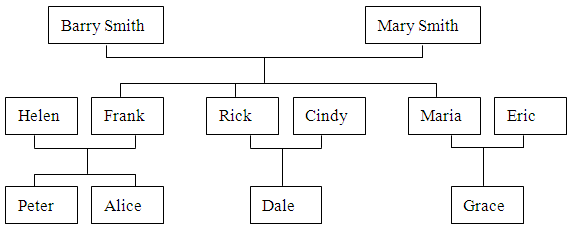题目内容
DIY, which means Do It Yourself, is quite popular in UK. Lots of stores and supermarkets sell DIY things. TV programmers show people how to DIY.
English people like DIY. There is a saying in UK----"As Englishman's home is his castle". If there is anything that needs fixing around their homes, such as painting the walls or putting in a new shower, they will do the jobs themselves. They share DIY experience with their friends. More and more people enjoy the joy of DIY. Sometimes people also D1Y for saving money. They like making their house better without spending a lot of money. It is not surprising that DIY is so popular.
DIY can be difficult. There is a huge market for DIY furniture which people need to get together themselves with a few basic tools. However, people often find it not easy to build a piece of furniture because they can't understand the instructions(结构).
DIY can also be dangerous. For example, anything electrical should be done by a professional(专业的) worker. Unluckily, many people don't care about this warning and put themselves in danger. It is reported that in just one year over 230,000 people were hurt while doing DIY in UK, including 41,000 who fell off ladders.
D1Y can bring us fun and help us save money, but it is not always as easy as it is thought to be if we bite off more than we can chew. Maybe factories should make products that are easier and safer for us to DIY.
小题1:How do many English people spend their holidays to the passage ?
小题2:Why do English people like DIY ?
小题3:What can we learn from the passage ?
小题4:In the passage, “we bite off more than we can chew ” probably means ______.
小题5:Which of he following is not DIY?
English people like DIY. There is a saying in UK----"As Englishman's home is his castle". If there is anything that needs fixing around their homes, such as painting the walls or putting in a new shower, they will do the jobs themselves. They share DIY experience with their friends. More and more people enjoy the joy of DIY. Sometimes people also D1Y for saving money. They like making their house better without spending a lot of money. It is not surprising that DIY is so popular.
DIY can be difficult. There is a huge market for DIY furniture which people need to get together themselves with a few basic tools. However, people often find it not easy to build a piece of furniture because they can't understand the instructions(结构).
DIY can also be dangerous. For example, anything electrical should be done by a professional(专业的) worker. Unluckily, many people don't care about this warning and put themselves in danger. It is reported that in just one year over 230,000 people were hurt while doing DIY in UK, including 41,000 who fell off ladders.
D1Y can bring us fun and help us save money, but it is not always as easy as it is thought to be if we bite off more than we can chew. Maybe factories should make products that are easier and safer for us to DIY.
小题1:How do many English people spend their holidays to the passage ?
| A.Making their homes beautiful. | B.Visiting friends. |
| C.Travelling. | D.Making money. |
| A.Many stores sell DIY things. | B.DIY can bring them fun. |
| C.TV programs teach them to DIY. | D.All DIY projects are easy. |
| A.DIY is waste of money. |
| B.It is always difficult to DIY. |
| C.We should be careful while doing DIY. |
| D.It is very sage for us to DIY. |
| A.we can eat everything we like |
| B.we should do something difficult |
| C.we do something that is too difficult |
| D.we eat too much food that is not safe |
| A.Making a postcard. | B.Colouring the walls of the house. |
| C.Making salad | D.Feeling the earth shaking. |
小题1:A
小题2:B
小题3:C
小题4:C
小题5:D
试题分析:这篇文章主要讲述了英国人喜欢DIY,自己动手做东西,例如自己粉刷墙壁等。DIY可以给人带来很多乐趣,并节约钱。但有些DIY是很难的,而且有些很危险,在DIY时我们要量力而行,注意安全。
小题1:判断推理题。根据文中描述English people like DIY. There is a saying in UK----"As Englishman's home is his castle". They like making their house better without spending a lot of money.英国人喜欢DIY,英国有句谚语“英国人的家就是他的城堡”,他们喜欢自己把房子装修得漂亮,而不用花很多钱;故选D。
小题2:细节理解题。根据文中描述More and more people enjoy the joy of DIY.越来越多的人喜欢DIY所带来的乐趣,所以此题选B,因为DIY可以给他们带来乐趣。
小题3:判断推理题。根据文中描述DIY can also be dangerous. DIY也是很危险的;故选C,在DIY时我们必须要小心。
小题4:句意猜测题。根据前文描述D1Y can bring us fun and help us save money, but it is not always as easy as it is thought to be…DIY可以给我们带来乐趣和帮助我们节约钱,但是它并不是总是如我们所认为的那么容易,故判断此句为:如果我们不量力而行的话。故选C,如果我们做一些太难的事情。
小题5:判断推理题。根据文中意思DIY, which means Do It Yourself。DIY是指自己动手做东西,例如装修房子,制作小礼物等;故D感受地面震动,不是DIY。

练习册系列答案
 阅读快车系列答案
阅读快车系列答案
相关题目
